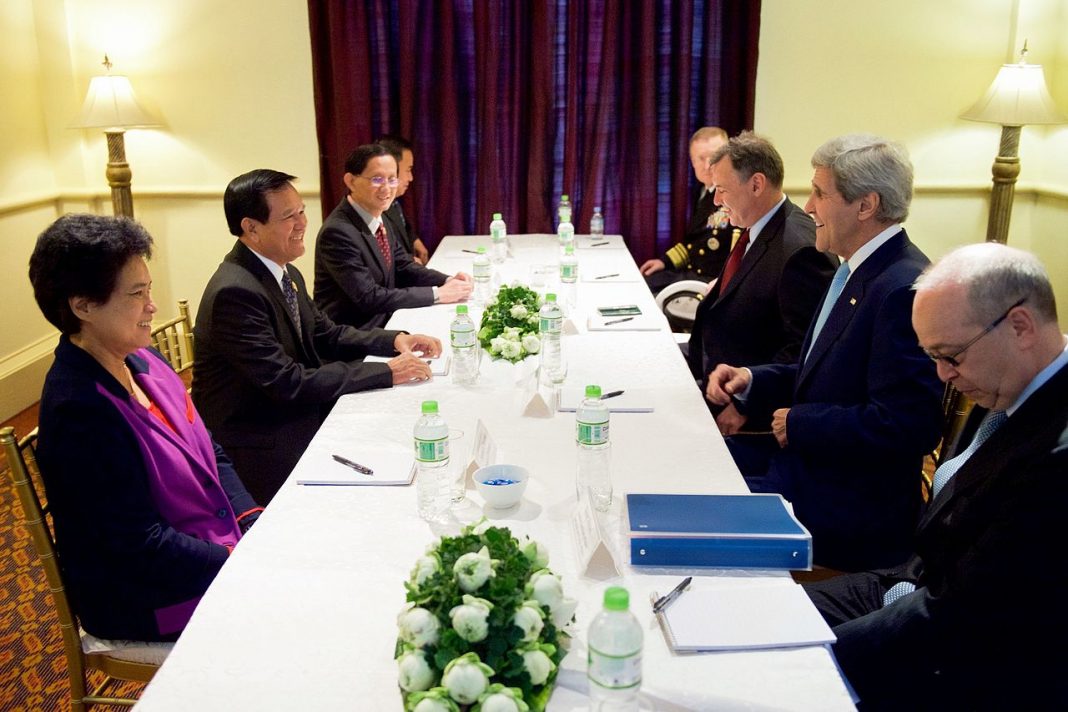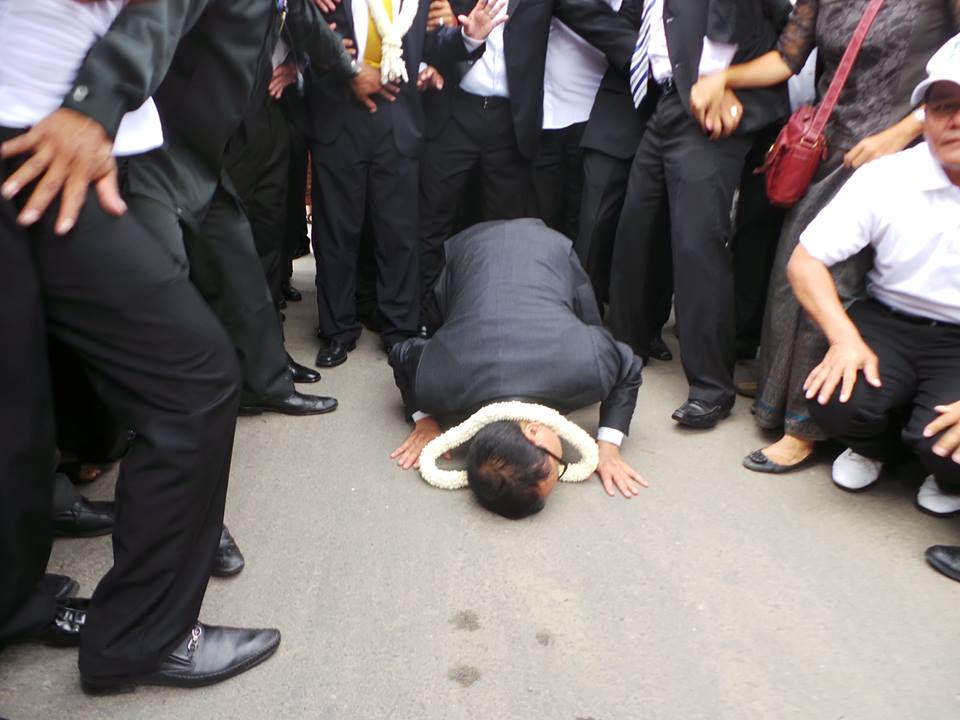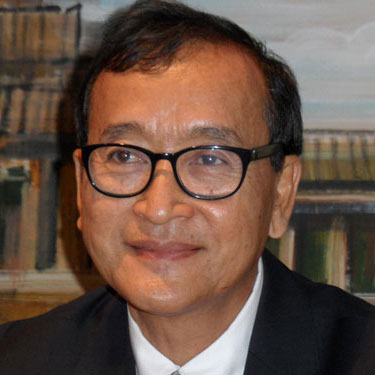Op-Ed: The Geopolitics
Protecting Kem Sokha and Democracy in Cambodia

Protecting Kem Sokha and Democracy in Cambodia
By Sam Rainsy -March 27, 2019
Under the leadership of Cambodian Prime Minister Hun Sen, the only opposition party in parliament, the Cambodia National Rescue Party (CNRP), was arbitrarily dissolved in 2017 and its leader, Kem Sokha, arrested. This set the scene for rigged elections in July 2018, with all of the seats in the National Assembly being won by the ruling Cambodian People’s Party (CPP).
Kem Sokha remains under house arrest, and his period of detention without trial now exceeds the maximum 18 months permitted by Cambodian law. When dealing with the international community, the government makes a half-hearted attempt to get around this 18-month problem by claiming that Kem Sokha has been released on bail. The restrictions on his movement since he was allowed home after spending a year in a remote prison, however, limit him to a few streets around his home.
Hun Sen in a speech to a domestic audience on March 25 clarified the point when he referred to Kem Sokha as being under house arrest. In the same speech, he also clarified, if any clarification was needed, that the justice system is subservient to his dictatorship. “I won’t set you free!” he said in comments aimed at Kem Sokha. “Once the court has convicted you, there won’t be any more problems.”

The reasons for such statements are clear. Kem Sokha, as the prime minister noted, has been urging the 118 leading members of the CNRP who are banned from politics against applying for political “rehabilitation.” The aim of these selective, individual rehabilitations is to divide the CNRP, to cut it into salami slices and to remove its electoral effectiveness. Recall that, despite numerous irregularities, the CNRP officially won close to the half of the votes in both the national election of 2013 and the local commune elections of 2017. Since its creation in 2012, the party has posed a clear threat to the continued domination of the CPP, and its division has been an overriding government priority.
The aim, therefore, is to produce small breakaway groups from the CNRP, which will join the numerous tiny parties which contested the 2018 national election but could not win a single national assembly seat between them. If any of these salami-slice parties one day became large enough to pose a serious threat to the government, they would simply be dissolved at gunpoint and the long, deceitful cycle would start again. The international community, it is hoped, will fail to see through the subterfuge. In fact, selective rehabilitation is a recipe for a series of rigged local and national elections in the years to come, underpinned, as and when needed, by government violence. Hun Sen has also made this clear, by saying that the government must work to “eliminate” the CNRP before Cambodia loses duty-free access to European markets.
The problem with the government’s plan to convict Kem Sokha is that it can’t find any evidence to take to a kangaroo court. The charge of treason that he faces is ludicrous and no credible evidence to support it has been produced at any stage. Any trial would be closely watched by the international community, but would be unable to produce any scrap of proof. The government has also failed to find a way to break the courage and resilience of Kem Sokha himself. Kem Sokha has endured all the threats that the government has made against him, and his continued loss of freedom, in the belief that Cambodians are entitled to a genuine democratic choice, and that the CNRP is capable of giving it to them.
The fake charge which has been leveled against Kem Sokha served as the pretext for the arbitrary dissolution of the CNRP. The party must be restored to political life in its full, unified form. Kem Sokha remains in serious personal danger and he deserves the support of the international community as he resists pressure from the dictatorship. The system of pluralism and democracy in Cambodia for which he is fighting is guaranteed by a binding international treaty, the Paris Peace Agreements of 1991. Kem Sokha’s courage means that there is still a chance to see that treaty finally implemented.
Image Credit: The US State Department. This work is in the public domain.
The views and opinions expressed in this article are those of the author and do not necessarily reflect the official policy or position of The Geopolitics.

Sam Rainsy is the leader of the Cambodian National Rescue Movement (CNRM), and co-founder and acting president of Cambodia National Rescue Party (CNRP).
